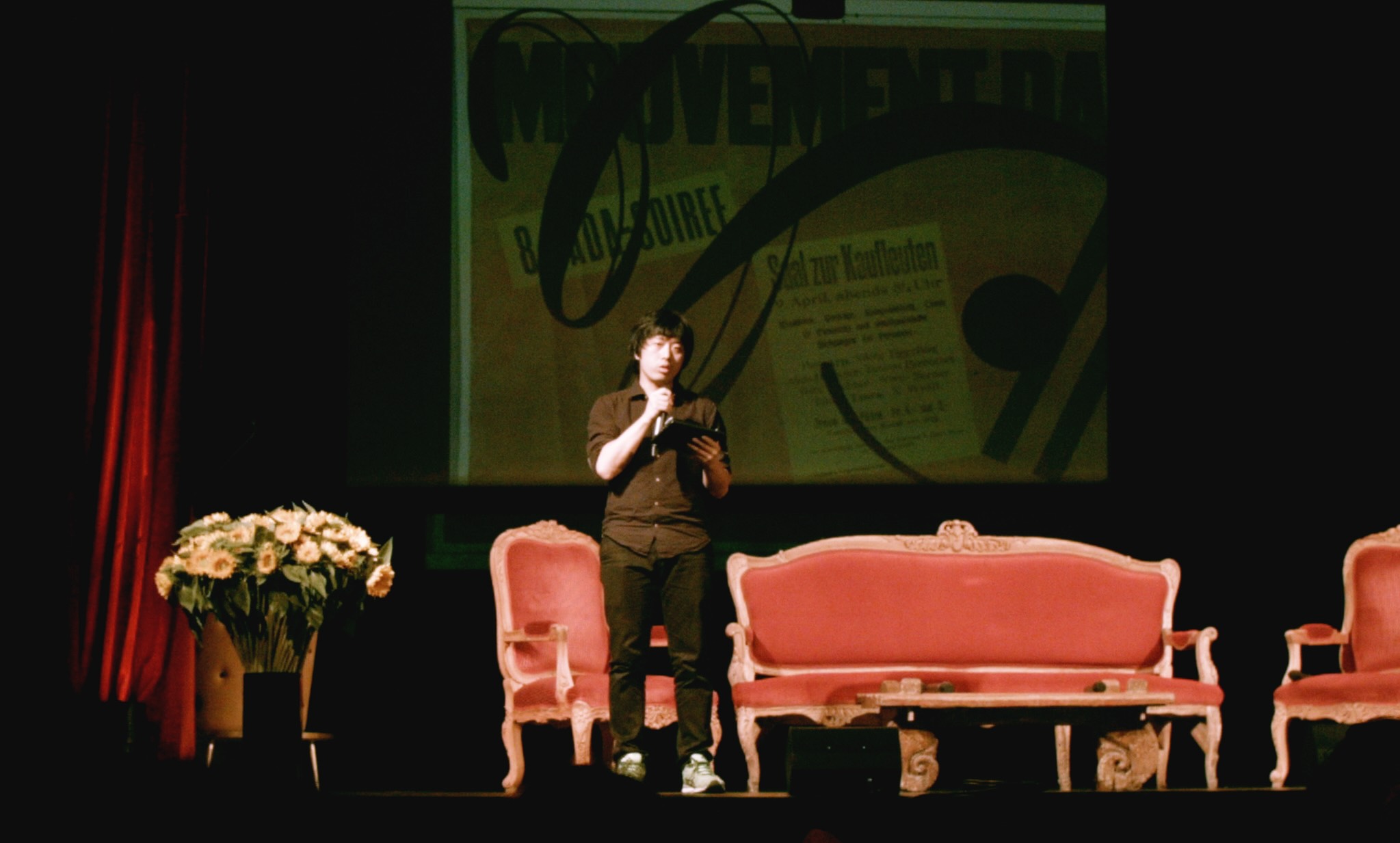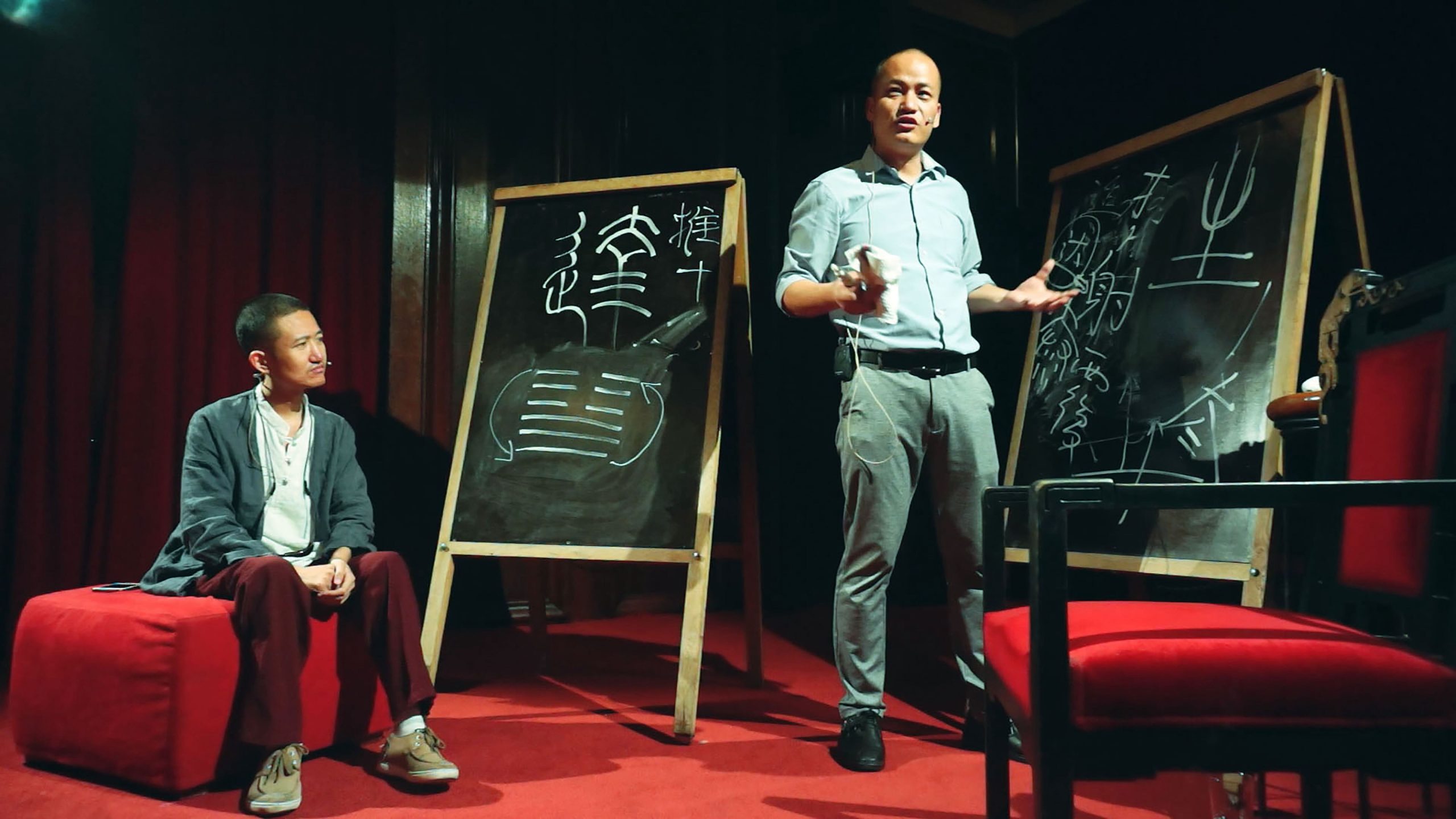2016


2016 marked the centenary of the birth of Dada, with its birthplace Zurich hosting over 200 celebratory events throughout the year. These activities were deeply intertwined with the 11th European Manifesto exhibition (Manifesta 11).
Artists Liu Ta and Li Shengzhao were invited to participate in the closing forum of the 'DADA100' commemorative series. They in turn invited two classical scholars, Yu Zhenhong and Jia Qinqian, to Kaufleuten in Zurich for a restaging of the final and largest Dada Soirée held in 1919, which attracted 1,500 attendees. During the event they conducted a 'Dada Declaration', analyzing a single Chinese character, '达' (da) through the lens of traditional Chinese phonetics and etymology, over a two-hour period.
The purpose of their 'Dada Declaration' was to create a moment that reflected the strive for 'meaninglessness' from which Dada was born, amidst a celebration where meaning itself often felt overly emphasized. One of the inherent dangers of memorial celebrations and historical reconstructions is the loss of the original’s destructive and progressive power. Dada should never become a worshipped and revered ‘classic'; the most suitable and perhaps only method of paying homage to Dada, is to try and recreate the original effect achieved by the pioneers. Only by capturing the very moment before the word Dada was first spoken can we pay homage to it, or else we simply become hostage to the lingering reverberations of century-old events.


2016 marked the centenary of the birth of Dada, with its birthplace Zurich hosting over 200 celebratory events throughout the year. These activities were deeply intertwined with the 11th European Manifesto exhibition (Manifesta 11).
Artists Liu Ta and Li Shengzhao were invited to participate in the closing forum of the 'DADA100' commemorative series. They in turn invited two classical scholars, Yu Zhenhong and Jia Qinqian, to Kaufleuten in Zurich for a restaging of the final and largest Dada Soirée held in 1919, which attracted 1,500 attendees. During the event they conducted a 'Dada Declaration', analyzing a single Chinese character, '达' (da) through the lens of traditional Chinese phonetics and etymology, over a two-hour period.
The purpose of their 'Dada Declaration' was to create a moment that reflected the strive for 'meaninglessness' from which Dada was born, amidst a celebration where meaning itself often felt overly emphasized. One of the inherent dangers of memorial celebrations and historical reconstructions is the loss of the original’s destructive and progressive power. Dada should never become a worshipped and revered ‘classic'; the most suitable and perhaps only method of paying homage to Dada, is to try and recreate the original effect achieved by the pioneers. Only by capturing the very moment before the word Dada was first spoken can we pay homage to it, or else we simply become hostage to the lingering reverberations of century-old events.